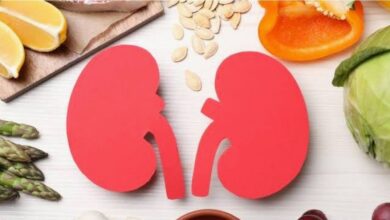Avoid hot water baths – Urologist warns men facing fertility issues

According to a graphiconline.com report on July 11, 2025, Prof Kyei explained that high temperatures interfere with sperm production, stressing that keeping the testes in a cool environment supports the formation of healthy sperm.
He noted that while the human body temperature typically ranges from 36 to 37 degrees Celsius, the temperature of the scrotum which houses the testes should ideally be around 33 to 34 degrees.
“Anything, including hot water baths, that raises the temperature of the testes brings it closer to body temperature, which compromises sperm production,” he said.
He added that excessive heat could lead to the formation of weak sperm or cause them to die.
“The basis of male fertility is being able to produce healthy sperms strong enough to travel through the woman to fertilise the egg,” Prof Kyei stated.
According to him, the effect of heat on sperm production is immediate.
“It doesn’t matter how long you take the bath once the testes are heated, all the sperms forming at that moment may be destroyed, and the fragile ones affected. The healthiest ones might survive,” he indicated.
He further noted that it takes about three months for sperm to mature, meaning the effect of any negative exposure like heat may not be seen until several weeks later.
Prof Kyei, who is also a Professor of Surgery at the University of Ghana Medical School, added that men who work in high-temperature environments such as ship engine rooms or mining sites and those who frequently ride motorbikes, are also at increased risk of infertility.
Describing male infertility as a significant contributor to childlessness among couples, he said, “Male infertility the inability to produce sperm or healthy sperm accounts for about 50 per cent of cases where couples are unable to conceive.”
He identified other causes of infertility such as Varicose veins in the scrotum, which trap body heat, Weightlifting and overexertion, Illicit drug use, such as marijuana and cocaine; Cigarette smoking and Anabolic steroid use for bodybuilding.
“In the case of anabolic steroids, they suppress normal testosterone, which is needed for sperm production. Though users gain big muscles, their testicles shrink — a condition known as testicular atrophy,” he said.
Infections such as epididymitis and sexually transmitted infections like gonorrhoea and chlamydia can also result in infertility, he added.
Prof Kyei stated that male infertility is often treatable. “Because the testes produce sperm daily, once the cause is removed, healthy sperm may reappear in three to six months.” However, he cautioned that in some cases such as when the testes have been damaged by steroids, severe trauma, or prolonged marijuana use the damage may be irreversible.
To maintain fertility, he advised men to avoid heat in the scrotal area, including wearing multiple layers of underwear.
“You don’t need to wear both boxers and briefs choose one,” he said.
He also highlighted testicle size as a key fertility indicator.
“The testis should measure more than 2.5 centimetres from top to bottom. Anything smaller suggests reduced sperm production.” Pain or discomfort in the testicles could also be a warning sign, he added.
Finally, Prof Kyei encouraged men having difficulty conceiving with their partners to undergo semen analysis, noting that it’s easier and less invasive than female fertility assessments.
“If the results show no sperm, men should consider accepting donor sperm, which still gives them the opportunity to have a child,” he said.





